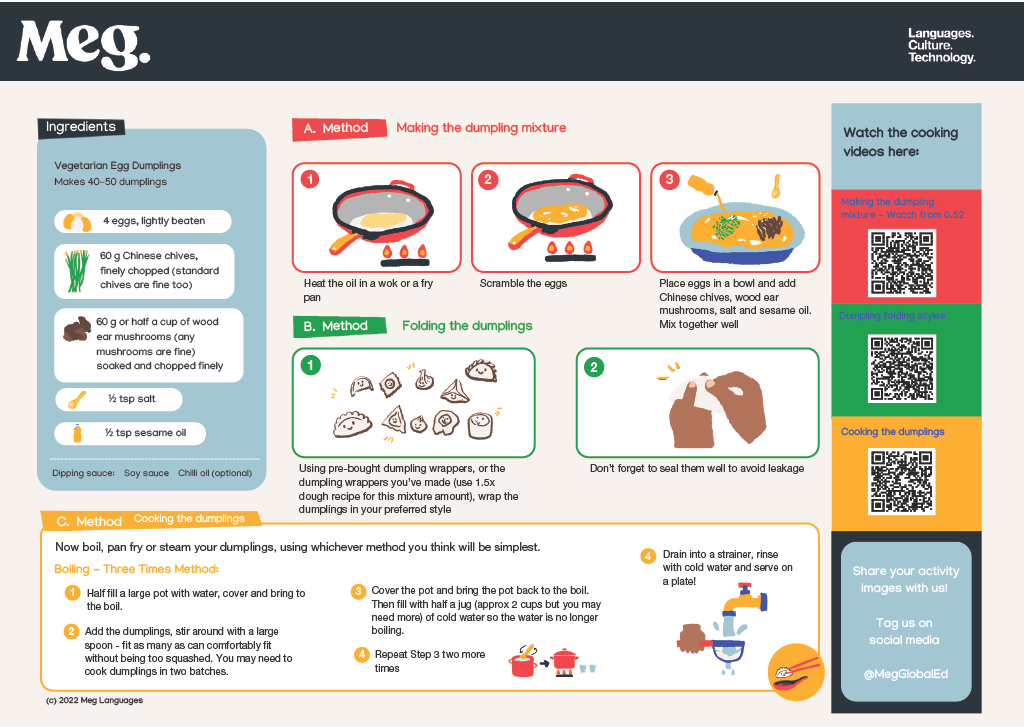Dragon Boat Festival: Explore And Celebrate “Double Fifth”
The Dragon Boat Festival, known as Duanwu Festival or Duanwu Jie, holds significant cultural importance in China and among Chinese communities worldwide. Traditionally observed on the 5th day of the 5th lunar month, its date varies annually in accordance with the lunar calendar. This year, it aligns with May 31st on the Western calendar. This festive occasion, marked by its distinct cultural customs and rituals, is recognized as a public holiday in China, with closures in schools and many businesses. Beyond China’s borders, the festival resonates with the global Chinese diaspora, fostering a shared celebration of heritage and tradition.
Please Note: As Qu Yuan apparently died by suicide, it’s important that educators preview materials and videos that they plan to share with students. Some materials do omit the aspect of suicide and simply refer to his death as a drowning but each resource should be reviewed individually.
Dragon Boat Festival’s Origins
The festival’s origins are traced back to the legendary figure of Qu Yuan (Chu Yuan), a famous Chinese poet and statesman, understood to have passed away in 278 BCE. Renowned for his literary talent, the festival is often informally referred to as the ‘Poets Festival’ in respect to his legacy. Qu Yuan’s life story is intriguing, depicting themes of loyalty and betrayal. His tragic death, reportedly by suicide, led local villagers to undertake a search for his body in the river, and where they also tossed rice into the water to stop fish from attacking his body.
This video mentions Qu Yuan’s apparent suicide.
Traditional Activities
Dragon Boat Races remain a cornerstone of the festival, accompanied by many other engaging activities. Many of these customs draw from ancient folk beliefs focused on warding off maladies and promoting well-being. Included in these traditions are the hanging of mugwort and calamus, wearing perfumed medicine bags, and crafting egg stands at midday. Locals may also drink realgar wine, which has historical significance, linking to the folk tales associated with the festival’s origins.
Let’s dive deeper into some of these traditions!
Let’s Get Eating!
As with many Chinese festivals, food takes centre stage during the Dragon Boat Festival, with a rich historical connection to rice dumplings, or Zongzi. These treats are made with an array of both sweet and savoury flavours, offering a delicious journey to Chinese cuisines. Exploring their preparation, including the unique bamboo leaf-wrapping technique, provides a fascinating glimpse into Chinese culinary heritage. Traditional variations feature fillings such as red bean paste for sweetness, or savoury options like salty duck egg or pork belly, alongside one intriguing dish named the Eight Treasure Zongzi. Across the nation, you can find Zongzi wrapping competitions, where locals showcase their adeptness and agility in wrapping them. In modern times, Zongzi flavours have expanded, with bakeries introducing innovative flavours annually, and today, you can even find ice cream-shaped Zongzi!
Dragon Boat Races
Undoubtedly, Dragon Boat Races are a significant highlight of the festival, with teams dedicating months to rigorous training in preparation. The bustling excitement of spectators witnessing the exhilarating races and supporting their favourite teams contributes to the festival’s spirited energy. Adorning the boats with colourful flags and iconic ‘dragon’ mastheads adds to the vibrant spectacle. The rhythms of drummers setting the rowers tempo and guiding the synchronised strokes of the rowers can be heard by everyone! Teams from many countries around the globe eagerly participate in the adrenaline-fueled competition.
Dragon Boat Festival as a Global Festival
The Dragon Boat Festival transcends borders, and is celebrated by Chinese heritage and diaspora communities around the world. Numerous cities host grand Dragon Boat Races, with some events attracting over a hundred participating teams, as seen in cities like Singapore, San Francisco, and Sydney. And for those more serious about Dragon Boat Racing, every two years, the International Dragon Boat Festival Racing Championship convenes, drawing teams from 40 nations to compete on an international “stage.”
The diversity of Zongzi flavours and types reflects the festival’s global reach. In regions like Nyonya, a distinctive cultural fusion of Malay and Chinese traditions, pandan leaves replace bamboo leaves as the wrapping. This amalgamation of culinary customs showcases the festival’s ability to bridge cultural divides and foster a sense of shared heritage among diverse communities worldwide.
Activities to Do in Class
We’ve created and curated some fun activities for the Dragon Boat Festival for you to choose and adapt for your students. Please enjoy exploring, learning more about and celebrating this global festival!
Global Learning Activity Cards: Chinese Culture
Explore additional activities linked to Chinese culture, including a poetry writing activity linked to Dragon Boat Festival, with our ever-growing range of fun, cross curricular activities for all ages, from Prep to Secondary School. Check them out here!

We hope you enjoy learning about one of China’s most important holidays and festivals, Dragon Boat Festival, with your students and building their global awareness with these fun activities.
We love seeing you and your students engage with global learning, so share some photos on your school’s social media channels and tag us so we can share it: @MegGlobalEd.

Lottie Dowling is a Primary School trained educator who has worked in a number of education roles internationally for more than 20 years including state schools and international schools in London, China, and NZ. She has worked as a Drama and Literacy specialist, in ESL and EAL roles, and now specializes in Global Citizenship Education.
Share this post

